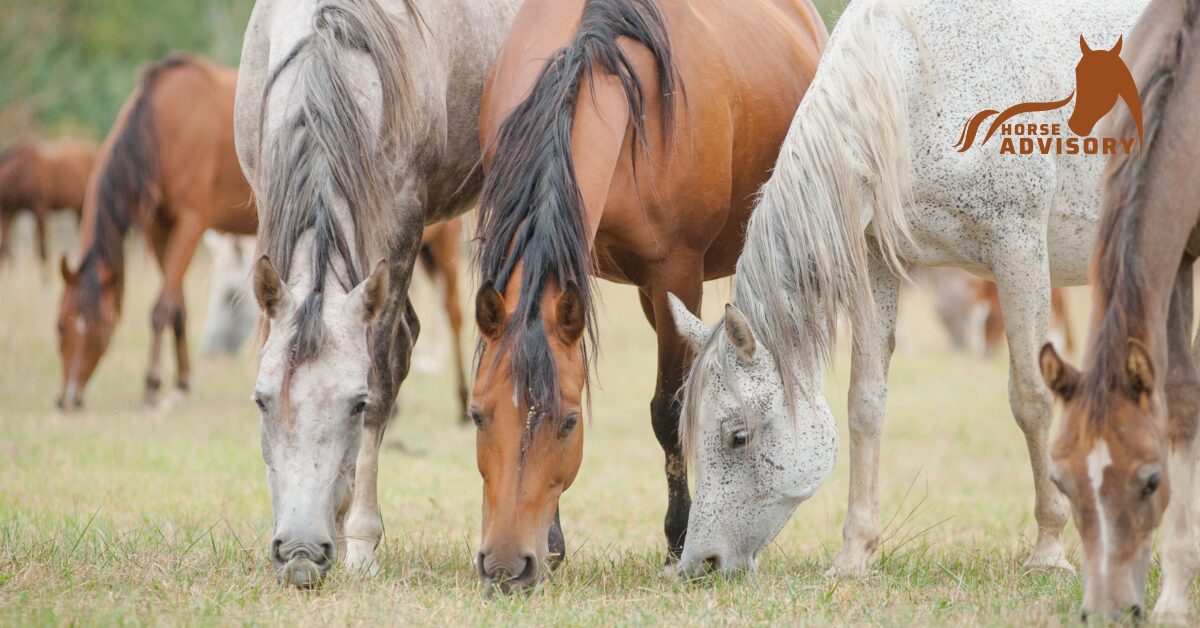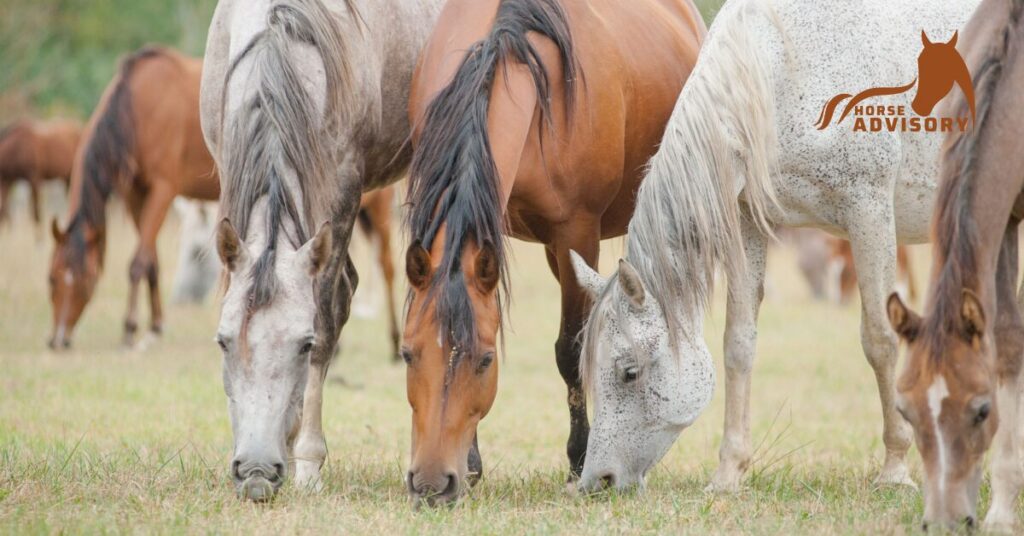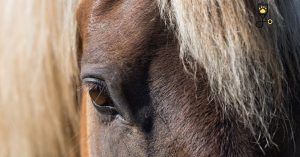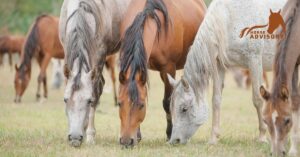As the world of equine breeding evolves, the integration of science and technology is becoming increasingly crucial. Among these advancements, genetic testing stands out as a revolutionary tool that is reshaping Arabian horse breeding. This blog post explores how genetic testing can improve breeding outcomes, the types of tests available, and its role in enhancing breed standards.
The Benefits of Genetic Testing
Genetic testing offers breeders a scientific approach to understanding the genetic makeup of Arabian horses. Here are some key benefits:
Informed Breeding Decisions
Genetic testing provides breeders with precise information about the genetic makeup of Arabian horses, including markers linked to desirable traits. This knowledge allows breeders to make strategic mating choices that enhance the likelihood of producing offspring with optimal qualities.
For example, if a genetic test reveals that a horse carries genes associated with superior endurance or a distinctive coat color, breeders can select mates that complement these traits to produce foals with enhanced attributes.
This scientific approach ensures that breeding decisions are based on more than just observable traits and performance; they are grounded in a thorough understanding of the genetic underpinnings that contribute to these characteristics. As a result, breeders can more reliably achieve specific goals within their breeding programs and improve the overall quality of their horses.
Disease Prevention
One of the most significant advantages of genetic testing is its role in disease prevention. Genetic tests can identify carriers of hereditary diseases, such as genetic mutations linked to conditions like Cerebellar Abiotrophy (CA) or Lethal White Syndrome. By knowing which horses carry these mutations, breeders can avoid pairing horses that could pass on these disorders to their offspring.
This proactive approach helps prevent the birth of affected foals, reducing the incidence of genetic diseases within the breed. Enhanced health and reduced disease prevalence not only improve the well-being and longevity of individual horses but also contribute to the overall robustness and vitality of the breed.
Preservation of Traits
Genetic testing plays a crucial role in preserving the unique traits of Arabian horses, which are highly valued by breeders and enthusiasts. Arabian horses are renowned for their endurance, intelligence, and distinctive appearance, and maintaining these characteristics is essential for the breed’s reputation and heritage. By understanding the genetic basis of these traits, breeders can make informed decisions to ensure their preservation.
For example, genetic tests can help identify which horses carry genes responsible for specific physical features or performance abilities, allowing breeders to select mates that will continue to express these traits in future generations. This ensures that the breed’s hallmark qualities are preserved and passed on, maintaining the breed’s legacy and appeal.
Read More: The Role of Genetics in Arabian Horse Health
Types of Genetic Tests Available
Several genetic tests are available to support Arabian horse breeders in their quest for excellence:
DNA Profiling
DNA profiling, also known as genetic fingerprinting, provides a unique genetic identifier for each horse. This test analyzes specific regions of a horse’s DNA to create a profile that is unique to that individual, much like a fingerprint in humans. DNA profiling is crucial for verifying parentage and ensuring pedigree integrity.
It helps confirm that the horses being bred are indeed the offspring of the stated parents, which is essential for maintaining accurate breeding records and pedigrees. This test also helps in identifying and resolving any discrepancies in lineage claims, ensuring the reliability of breeding programs and the authenticity of the horses’ pedigrees.
Genetic Disease Panels
Genetic disease panels are comprehensive tests that screen for a range of hereditary diseases known to affect Arabian horses. These panels can include tests for several specific genetic conditions, such as:
- Severe Combined Immunodeficiency (SCID): A fatal genetic disorder that affects a horse’s immune system, leaving it unable to fight off infections.
- Lavender Foal Syndrome (LFS): A genetic disorder that causes neurological symptoms and a distinctive lavender-colored coat in affected foals.
These panels help breeders identify carriers and affected horses, enabling them to make informed breeding decisions to avoid producing offspring with these disorders. By screening for these conditions, breeders can reduce the prevalence of genetic diseases within the breed and promote healthier future generations.
Trait-Specific Tests
Trait-specific tests focus on particular genetic traits that are of interest to breeders. These tests can identify genes associated with traits such as:
- Coat Color: Tests that determine genetic markers for various coat colors and patterns, allowing breeders to select horses that will produce the desired coat colors in their foals.
- Performance Abilities: Tests that assess genetic markers linked to performance traits such as stamina, speed, and agility. These tests can help breeders select horses that are more likely to excel in specific disciplines or have desirable performance attributes.
By using trait-specific tests, breeders can tailor their breeding programs to achieve specific goals, whether it’s enhancing physical appearance, performance capabilities, or other desirable characteristics. This precision helps in achieving breeding objectives more effectively and maintaining or improving the quality of the horses.

Improving Breed Standards
Genetic testing plays a pivotal role in advancing breed standards by:
Enhancing Genetic Diversity
Genetic testing is crucial for understanding and enhancing genetic diversity within a breed. Genetic diversity refers to the range of different genetic traits within a population, which is important for the overall health and resilience of the breed. By using genetic testing, breeders can:
- Identify Genetic Variability: Determine the level of genetic diversity among horses by identifying unique genetic markers and variations. This helps in understanding how genetically diverse the current breeding population is.
- Avoid Inbreeding: Recognize genetic relatedness among horses to prevent inbreeding, which can lead to a higher risk of genetic disorders and reduced fertility. Genetic testing helps breeders make informed choices to pair horses that are less closely related, thus maintaining or increasing genetic diversity.
- Enhance the Gene Pool: By strategically introducing new, unrelated genes into the breeding program, breeders can strengthen the gene pool and improve the breed’s overall genetic health. This approach ensures that future generations benefit from a wider range of genetic traits, contributing to the breed’s robustness and adaptability.
Selecting for Superior Traits
Genetic testing allows breeders to focus on enhancing specific traits that are valued in Arabian horses, thus advancing the breed’s standards. Here’s how it supports the selection for superior traits:
- Trait Identification: Genetic tests can pinpoint the genetic basis of desirable traits such as stamina, endurance, conformation, and coat color. By understanding which horses carry the genes associated with these traits, breeders can make more targeted breeding decisions.
- Prioritizing Performance and Conformation: Breeders can select horses with genetic profiles that align with the breed’s standards for performance and physical conformation. For example, testing can reveal genetic markers associated with high stamina or ideal conformation, enabling breeders to prioritize these attributes in their breeding programs.
- Preserving Breed Integrity: By selecting for traits that align with the breed’s established standards, genetic testing helps maintain and enhance the breed’s reputation. Ensuring that future generations continue to reflect the breed’s prestigious lineage and unique characteristics is crucial for preserving the breed’s legacy.
Incorporating Genetic Testing in Breeding Programs
To effectively incorporate genetic testing into breeding programs, breeders should:
1. Partner with Reputable Labs
Why It’s Important:
- Accuracy and Reliability: Partnering with reputable laboratories that specialize in equine genetics ensures that the genetic tests you receive are accurate and reliable. These labs use validated methodologies and have experience in analyzing equine DNA, which minimizes the risk of errors and ensures high-quality results.
- Expertise: Reputable labs employ geneticists and technicians who are well-versed in equine genetics, which means they can provide not only precise test results but also expert interpretation and advice.
- Quality Control: Established labs have rigorous quality control procedures in place, which helps in maintaining the integrity and consistency of the test results. This is crucial for making informed and reliable breeding decisions.
Steps to Take:
- Research Labs: Investigate and compare different genetic testing labs, looking for those with positive reviews, certifications, and a track record of working with equine genetics.
- Consult Experts: Engage with professionals or seek recommendations from trusted sources within the equine community to identify reputable labs.
- Verify Services: Ensure the lab offers the specific tests you need and check their protocols for handling and processing samples.
2. Educate Themselves
Why It’s Important:
- Informed Decision-Making: Understanding the implications of genetic test results enables breeders to make informed decisions about mating pairs and breeding strategies. It helps in interpreting the data accurately and understanding how it impacts breeding outcomes.
- Avoid Misinterpretation: Genetic results can be complex, and without proper knowledge, there is a risk of misinterpreting the data, which can lead to suboptimal breeding decisions.
- Stay Updated: The field of genetics is constantly evolving, so staying informed about new discoveries, testing methods, and best practices is essential for effective breeding.
Steps to Take:
- Educational Resources: Take advantage of educational resources such as seminars, workshops, and online courses focused on equine genetics.
- Consult Professionals: Work with genetic counselors or veterinarians who specialize in equine genetics to gain a deeper understanding of test results and their implications.
- Continuous Learning: Stay updated with the latest research and developments in genetic testing and equine breeding practices through scientific journals, industry publications, and professional networks.
3. Balance Science with Tradition
Why It’s Important:
- Holistic Approach: While genetic testing provides valuable insights, it is important to balance these insights with traditional breeding practices and the overall health and temperament of the horses. This holistic approach ensures that breeding decisions are well-rounded and consider all aspects of the horse’s suitability.
- Preserving Heritage: Traditional breeding practices have contributed to the breed’s development and characteristics. Integrating scientific advancements with these practices helps preserve the breed’s heritage while enhancing its quality.
- Comprehensive Evaluation: Focusing solely on genetic data without considering other factors may overlook important aspects such as the horse’s conformation, behavior, and compatibility with breeding goals.
Steps to Take:
- Integrate Knowledge: Combine genetic insights with traditional breeding knowledge, including conformation standards, performance history, and temperamental qualities.
- Holistic Assessment: Evaluate each horse as a whole, considering both genetic data and traditional criteria, to make balanced breeding decisions.
- Consult Breeders: Collaborate with experienced breeders who understand both the scientific and traditional aspects of breeding to guide decision-making.
Potential Challenges
Despite its advantages, genetic testing in Arabian horse breeding presents certain challenges:
Cost
Genetic testing can be expensive, and the costs may include not only the price of the tests themselves but also associated expenses such as sample collection and shipping. This financial burden may be significant for some breeders, particularly those operating on a tight budget or managing a small number of horses. The cost can be a barrier to accessing advanced testing, potentially limiting its widespread use.
Breeders should budget for genetic testing as part of their long-term investment in breeding quality. Exploring options for financial support, prioritizing essential tests, and seeking out grants or subsidies can help manage these costs.
Complexity of Results
Genetic test results can be intricate and difficult to interpret without specialized knowledge. Understanding how genetic markers relate to traits or diseases requires expertise in genetics, which means breeders might need to consult with geneticists or veterinarians. This adds a layer of complexity and potential additional costs for professional advice.
Investing time in education about genetics and working with experienced professionals can help in accurately interpreting results. Choosing labs that provide clear, comprehensive reports and explanations can also aid in understanding and applying the information effectively.
Ethical Considerations
The use of genetic testing in breeding raises ethical questions regarding the extent of human intervention in natural processes. There are concerns about how genetic manipulation might impact the breed’s natural diversity and whether it could lead to the prioritization of certain traits at the expense of overall health and welfare.
Breeders should approach genetic testing with a balanced perspective, considering both scientific benefits and ethical implications. Developing ethical guidelines for breeding practices and maintaining transparency about the use of genetic testing can help address these concerns and ensure that breeding decisions are made with the horses’ best interests in mind.
Conclusion
Genetic testing is a powerful tool that can significantly enhance the breeding of Arabian horses. By providing insights into genetic health, trait selection, and parentage verification, breeders can improve the breed’s overall quality and sustainability. While challenges exist, the benefits of integrating genetic testing into breeding programs are undeniable. As breeders continue to explore this scientific frontier, the future of Arabian horses looks promising, preserving their legacy while promoting health and vitality for generations to come.





